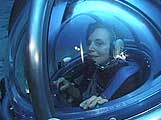 I’m off to Wellington next week to take part in the NZ Climate Change Research Institute‘s Climate Futures Forum being held in Te Papa on Thursday and Friday. The forum’s organised around four themes:
I’m off to Wellington next week to take part in the NZ Climate Change Research Institute‘s Climate Futures Forum being held in Te Papa on Thursday and Friday. The forum’s organised around four themes:
- Climate change and society’s challenge
- Communication between the science community and society
- Human behaviour and the capacity to change
- Towards durable decision-making
There’s a great line-up of speakers and participants: scientists David Karoly, Martin Manning and Dave Frame, science writers Fred Pearce and Erik Conway (Naomi Oreskes’ co-author on Merchants of Doubt) and many others. I’m taking part in a “café” session on the Thursday evening (giving a short 8 minute talk) and then on Friday evening joining Pearce and Conway on stage at the Soundings Theatre in the museum at 6-30pm to discuss climate communication (Sean Plunket in the chair, tickets are free). I’ll be trying to grab a few interviews for future Climate Shows, but most of all I’ll be listening and learning (and perhaps tweeting/blogging a bit, if I have time). Promises to be a fascinating few days, even if I don’t go to see the colossal squid.
Just in from the RSNZ newsletter: Professor Martin Manning, Founding Director, NZ Climate Change Research Institute, invites members of the public to attend two events which are part of the climate change forum on 31 March and 1 April.
- Café session (free) – What can we do as individuals? – panel hosted by Ian Wedde with Gareth Renowden, Sir Lloyd Geering, Professor Bob Gifford and Dr Bronwyn Hayward. 31 March, 6.30 – 8.00pm, Te Papa.
- Breakfast session (free) – Responding to big risks – panel hosted by Chris Laidlaw with Martin Kreft, Fred Pearce, Colin James and Professor David Karoly. 1 April, 7.00am – 8.30am, Te Papa.
For more information, and to register for the forum and these events, visit www.confer.co.nz/climate_futures – email Liz Thomas, or phone 04 463 5507.
[Update: Thursday evening Café Session and Friday business breakfast events are now free, thanks to sponsorship by the British High Commission. You’ll still need tickets though, so contact Liz for more info.]
[James Brown, of course]

 “We are committed to developing deepwater energy supplies offshore.†Those blunt words from the US Administration were put to oceanographer Sylvia Earle by Stephen Sackur late in a captivating
“We are committed to developing deepwater energy supplies offshore.†Those blunt words from the US Administration were put to oceanographer Sylvia Earle by Stephen Sackur late in a captivating  Lester Brown doesn’t let up when he’s published a book. Over successive months his Earth Policy Institute produces follow-up articles focusing on particular topics. The
Lester Brown doesn’t let up when he’s published a book. Over successive months his Earth Policy Institute produces follow-up articles focusing on particular topics. The